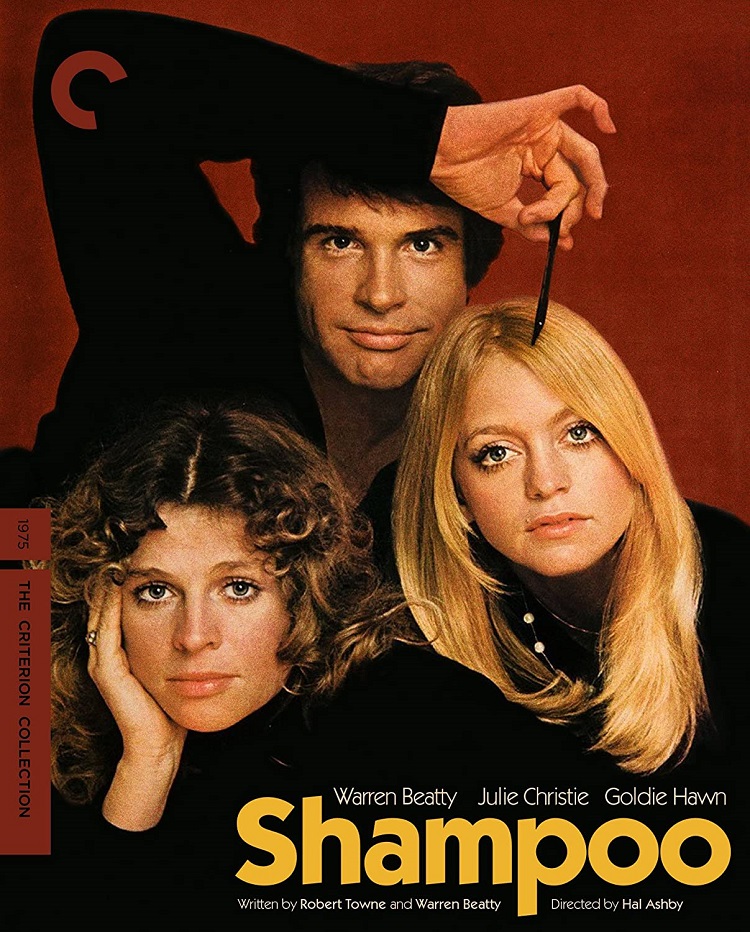
Perhaps the most remarkable aspect of this film is Warren Beatty’s glorious hair. Playing a Beverly Hills hairdresser/lothario named George, Beatty wields long locks styled to such excess that they’re seemingly a special effect. Thankfully, the rest of the film is worthy of the majestic mane, delivering a sharply humorous exploration of sexual politics against a backdrop of real politics set during the timeframe of Nixon’s 1968 election.
George is a talented hairdresser who dreams of opening his own shop, but lacks the means to make it happen. He has a girlfriend named Jill (Goldie Hawn), but also engages in sexual liaisons with his wealthy older hair-salon clients whenever he pleases, making house calls on his cool motorcycle. He manages to secure financing for his proposed shop from the husband of one of his clients, but plans run awry when the husband’s mistress Jackie (Julie Christie) who also happens to be one of George’s conquests, forces George to realize that he wants Jackie more than he wants his shop.
As written by Beatty and Robert Towne and ably directed by Hal Ashby, the film rises above its bedroom antics by setting it at the time of Nixon’s election, contrasting the sexual freedom of George’s generation with the conservative culture fostered by Nixon’s older Republican base. It’s a fascinating study that still resonates today, even though the politics are kept mostly in the background.
Beatty is fantastic in his role, so comfortable that it’s easy to believe he’s just playing himself. Hawn similarly has no need to stretch far from her already established public persona. The biggest casting surprise is a brief turn by a teenage Carrie Fisher as the daughter of one of George’s ladies, expertly playing a bored rich girl who also has her sights set on George.
The Blu-ray is sourced from a brand new 4K digital restoration with uncompressed monaural soundtrack. Picture quality is superb, although a few instances of dirt were missed by the digital dustmop. I didn’t detect any hiss or crackle on the monaural soundtrack, and Criterion also offers an alternate 5.1 surround DTS-HD Master Audio soundtrack, although it seems like overkill for this dialogue-heavy project filmed almost entirely on interior sets.
Bonus features are surprisingly light for a Criterion release, with only a brief 1998 interview with Beatty and a new discussion about the film by two critics. Beatty’s feature is illuminating as he reveals that he didn’t really like the character, while also admitting that he was having “a bit too much fun” at that stage of his life, so was probably closer to the character than he would like to believe.